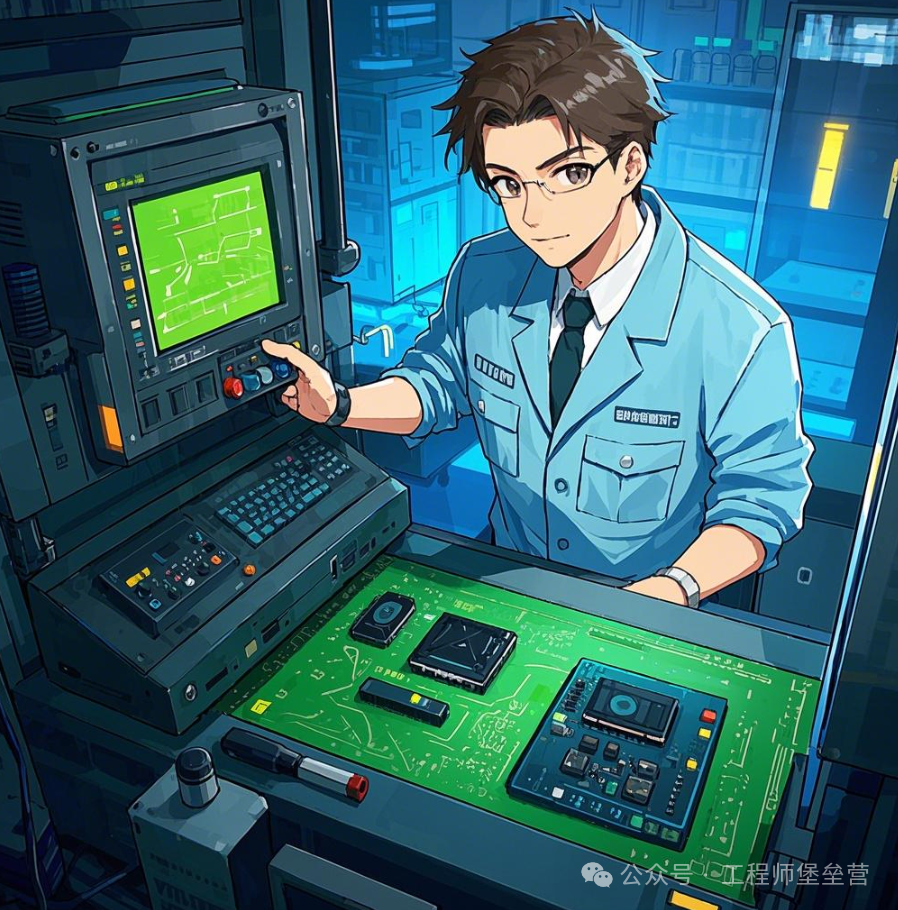Hardware engineers are a group of people who “build with circuit boards”. They use various electronic components, such as resistors, capacitors, and chips, to piece together and design electronic products with various functions, such as mobile phones, computers, routers, and more.
Sounds simple, right? But in reality, the work of hardware engineers is not that easy. They not only need to understand circuit principles but also be able to draw circuit diagrams, design PCB boards, solder components, and debug circuits… They are truly “masters of many trades”.

Moreover, hardware engineers face various challenges:
-
“A single thread can affect the whole system”: Circuit design is like building blocks; changing one part may affect the stability of the entire system. Hardware engineers must consider everything carefully to avoid “pressing down on the gourd and having the ladle pop up”.
-
“Theoretical knowledge is not enough”: Having theory alone is not sufficient; hardware engineers must also have strong hands-on skills to turn designs into tangible products.
-
“Keeping up with the times is essential”: Electronic technology evolves rapidly, and hardware engineers must continuously learn new knowledge to keep pace with the times.
Although the work is tough, hardware engineers also experience a great sense of accomplishment. Watching the circuit boards they design turn into powerful electronic products feels like watching their children grow up, and the pride is immeasurable!
If you want to become a hardware engineer, in addition to mastering the fundamentals of electronic technology, you should also cultivate the following “soft skills”:
-
Attention to detail and patience: Hardware debugging is a meticulous task that requires patience and attention to detail to identify and solve problems.
-
Teamwork spirit: Hardware development often requires teamwork, and hardware engineers must be good at communication and closely collaborate with other engineers.
-
Continuous learning ability: The rapid development of electronic technology requires hardware engineers to maintain a passion for learning and continuously update their knowledge base.
In summary, being a hardware engineer is a profession full of challenges and opportunities. If you are passionate about electronic technology and willing to continuously learn and improve, then becoming a hardware engineer is a great choice!
Daily Life of a Hardware Engineer:
-
Requirement Analysis: Communicate with product managers to understand product requirements and functions.
-
Solution Design: Design hardware solutions based on requirements and select appropriate components.
-
Schematic Design: Use professional software to draw circuit schematics.
-
PCB Design: Design PCB layout and routing based on the schematic.
-
Component Selection: Choose suitable components while considering cost, performance, and supply factors.
-
Prototype Production: Produce prototypes from the designed PCB.
-
Debugging and Testing: Debug and test the prototype to ensure its functions and performance meet requirements.
-
Documentation: Write hardware design documentation, including schematics, PCB layouts, BOM lists, etc.
Future Development of Hardware Engineers:
With the rapid development of emerging technologies such as the Internet of Things, artificial intelligence, and 5G, the demand for hardware engineers is also increasing. In the future, hardware engineers will face more opportunities and challenges:
-
More Complex System Design: Future electronic products will be more complex, requiring hardware engineers to master more advanced system design methods.
-
Faster Product Iteration Speed: With intense market competition, the speed of product iteration is accelerating, and hardware engineers need to improve work efficiency.
-
Cross-Disciplinary Collaboration: Future electronic products will be more intelligent, requiring hardware engineers to collaborate across disciplines with software engineers, algorithm engineers, and others.
In summary, being a hardware engineer is a profession full of challenges and opportunities. If you are passionate about electronic technology and willing to continuously learn and improve, then becoming a hardware engineer is a great choice!